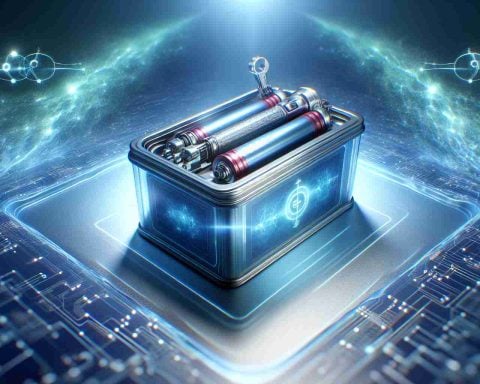Concerns Grow Over Electric Vehicle Plant in Calhoun County
The planned electric vehicle battery facility in Calhoun County, Michigan, is now under scrutiny as Republican lawmakers intensify their opposition following a significant federal government announcement. Recently, the U.S. Department of Defense included Contemporary Amperex Technology Co. Ltd. (CATL) on its list of companies tied to the Chinese military, raising alarms about the $2 billion project, which is being developed in collaboration with Ford Motor Co.
The Department of Defense emphasized that the list aims to highlight potential threats from the People’s Republic of China as they blend military and civilian operations to gain advanced technologies. This situation has stirred up potential national security concerns, primarily due to Chinese regulations mandating companies to share sensitive data with the government.
Michigan State Representative Sarah Lightner underscored the urgency for stricter oversight surrounding the project, advocating for mechanisms to retrieve taxpayer money if significant threats emerge. She argued that the state must prioritize safeguarding funds meant for public benefit.
On the other hand, CATL insists that its inclusion on the list is erroneous and maintains that it does not partake in any military-related activities. The ongoing discussions reflect a growing tension regarding corporate involvement in local economic initiatives, and lawmakers are debating the viability of substantial state funding for such projects. As this saga unfolds, the future of the BlueOval Battery Park remains uncertain and highly contentious.
Rising Tensions: Understanding the Implications of the EV Battery Plant Controversy in Michigan
Overview
The establishment of an electric vehicle (EV) battery manufacturing facility in Calhoun County, Michigan, has become a focal point of controversy following recent developments involving Contemporary Amperex Technology Co. Ltd. (CATL). The billion-dollar project, which is in partnership with Ford Motor Co., faces scrutiny primarily due to national security concerns linked to CATL’s identification by the U.S. Department of Defense as a company with ties to the Chinese military.
New Insights and Trends
# National Security and Corporate Responsibility
The situation has raised critical questions about how corporate partnerships may impact national security. Insight into the U.S. government’s increasing vigilance over foreign investments reveals a broader trend of heightened scrutiny surrounding technology sharing, especially concerning adversarial nations like China. The call for stricter oversight, as voiced by Michigan State Representatives, underscores a growing movement within U.S. politics to reassess foreign investments in critical industries.
# Economic Implications
As the EV market expands, Michigan’s role as a hub for electric vehicle production becomes increasingly significant. The emerging tensions around the Calhoun County project hint at the potential repercussions for local economies linked to these high-stakes partnerships. Should the project face delays or cancellations due to these controversies, the economic impact could reverberate throughout the region, causing job losses and hindering technological progress.
Pros and Cons of the Calhoun County EV Battery Plant
Pros:
1. Job Creation: The facility promises substantial job opportunities for local residents, potentially revitalizing the local economy.
2. Advancement of EV Technology: The plant could accelerate innovations within the electric vehicle sector, contributing to environmental sustainability goals.
Cons:
1. National Security Risks: Concerns regarding data sharing and technology transfer to potential adversaries pose significant risks.
2. Investment Uncertainty: The ongoing controversy may deter potential investors and undermine confidence in the project.
Use Cases and Compatibility
The Calhoun County facility is expected to produce advanced lithium-ion batteries, crucial for a range of electric vehicles. This aligns with global shifts towards sustainable transport solutions, making the plant strategically important for future mobility trends. Compatibility with existing EV technologies will be essential for the plant’s success, as it aims to supply major automotive manufacturers seeking to diversify their battery sources.
Limitations and Controversies
While CATL maintains it does not engage in military activities, reputational risks and regulatory challenges loom large. The incident reflects a growing unease about reliance on foreign technology providers in critical supply chains, leading to calls for domestic production and innovation. Furthermore, as state funding debates progress, limitations in budget allocation could impact the facility’s long-term viability.
Conclusion
As discussions around the Calhoun County battery plant continue, stakeholders must weigh the potential national security implications against the economic benefits of such significant investments. With polarized opinions based on rising geopolitical tensions, the future of the EV plant serves as a litmus test for how the U.S. navigates its economic and security strategies in an increasingly interconnected world.
For more information about electric vehicle initiatives and policies, visit Energy.gov.


















